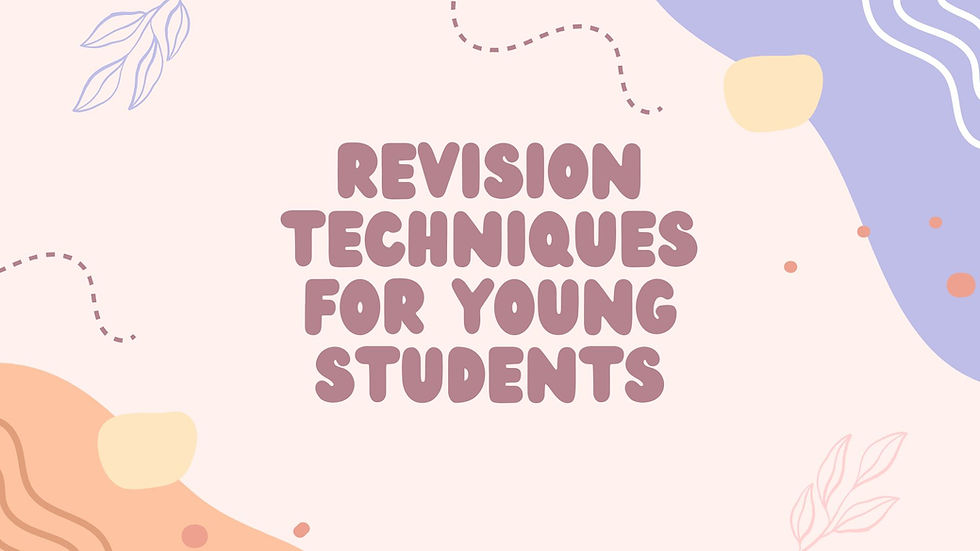Effective Revision Techniques for Young Students
- genieeduhub
- Feb 24, 2024
- 2 min read
As parents and educators, we recognize the importance of building strong study habits from an early age. Revision is not just about memorizing facts; it's about understanding concepts and applying them effectively. For young primary school students in Singapore, developing effective revision techniques can set the foundation for lifelong learning. Here are some strategies that can make revision both effective and engaging for young learners.

1. Create a Structured Revision Schedule
Young students thrive on routine. Create a revision schedule that allocates specific times for study, play, and rest. Short, consistent study periods are more effective than cramming, especially for younger children. This not only helps in managing their time efficiently but also reduces stress, making revision sessions something they can look forward to.
2. Use Visual Aids
Visual aids such as charts, diagrams, and flashcards can make learning more interactive and fun. They help in breaking down complex information into manageable, bite-sized pieces. Encourage your child to use different colors and pictures to represent information. This technique aids memory retention and makes revision sessions visually stimulating for young minds.
3. Incorporate Active Learning
Active learning involves engaging with the material through activities such as summarizing, questioning, and teaching the content to someone else. Encourage your child to explain a concept they've learned to you. This not only reinforces their understanding but also boosts confidence in their knowledge.
4. Practice with Past Papers
Using past examination papers or practice worksheets can help familiarize students with the format and types of questions they can expect. It's a practical way to apply what they have learned and improve their problem-solving skills. Start with guided practice, where you work through questions together, and gradually move to independent practice.
5. Take Regular Breaks
It's important to remember that young students have shorter attention spans. Incorporate short, frequent breaks into the revision schedule to help them stay focused and retain information better. Breaks are also a good opportunity for physical activity, which is essential for cognitive function and overall well-being.
6. Encourage Reading for Pleasure
Fostering a love for reading from an early age can significantly enhance a child's learning ability. Encourage your child to read a variety of materials, not just textbooks. Reading for pleasure expands vocabulary, improves comprehension skills, and stimulates curiosity.
7. Create a Positive Learning Environment
Ensure that your child has a quiet, well-lit space for studying, free from distractions. A positive, encouraging atmosphere can significantly affect their motivation and attitude towards learning. Praise their efforts, not just their achievements, to build their confidence and resilience.
Revision for young primary school students should be a balanced mix of structure, fun, and encouragement. By incorporating these techniques, parents and educators can help children develop effective study habits that will benefit them throughout their academic journey and beyond. Remember, the goal is to foster a love for learning, so keep the revision sessions engaging, positive, and supportive.




Comments